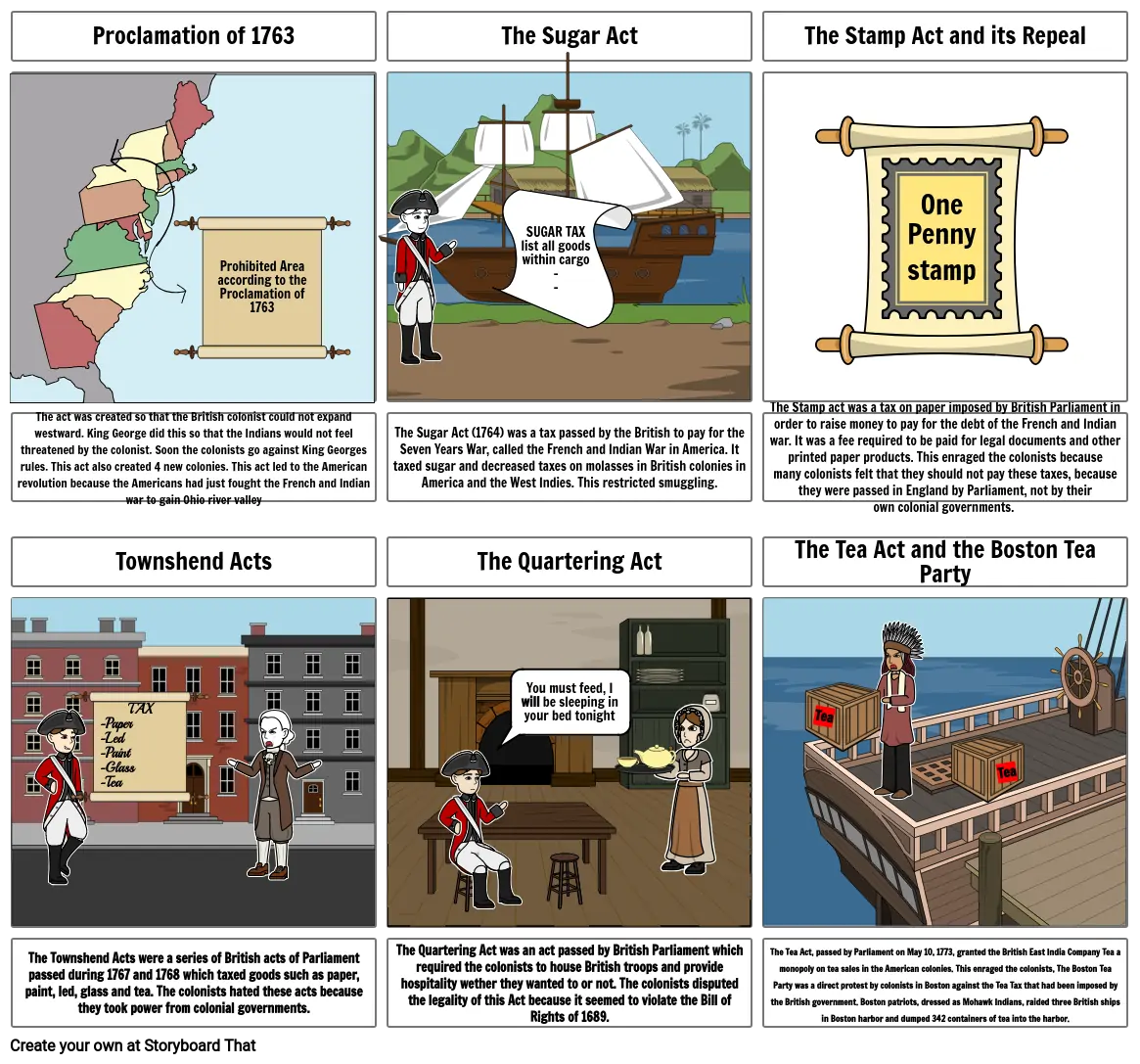Causes of the American Revolution

Texto del Guión Gráfico
- Proclamation of 1763
- Prohibited Area according to the Proclamation of 1763
- The Sugar Act
- SUGAR TAXlist all goods within cargo--
- The Stamp Act and its Repeal
- One Penny stamp
- The act was created so that the British colonist could not expand westward. King George did this so that the Indians would not feel threatened by the colonist. Soon the colonists go against King Georges rules. This act also created 4 new colonies. This act led to the American revolution because the Americans had just fought the French and Indian war to gain Ohio river valley
- Townshend Acts
- The Sugar Act (1764) was a tax passed by the British to pay for the Seven Years War, called the French and Indian War in America. It taxed sugar and decreased taxes on molasses in British colonies in America and the West Indies. This restricted smuggling.
- The Quartering Act
- You must feed, I will be sleeping in your bed tonight
- The Stamp act was a tax on paper imposed by British Parliament in order to raise money to pay for the debt of the French and Indian war. It was a fee required to be paid for legal documents and other printed paper products. This enraged the colonists because many colonists felt that they should not pay these taxes, because they were passed in England by Parliament, not by their own colonial governments.
- The Tea Act and the Boston Tea Party
- Tea
- The Townshend Acts were a series of British acts of Parliament passed during 1767 and 1768 which taxed goods such as paper, paint, led, glass and tea. The colonists hated these acts because they took power from colonial governments.
- TAX-Paper-Led-Paint-Glass-Tea
- The Quartering Act was an act passed by British Parliament which required the colonists to house British troops and provide hospitality wether they wanted to or not. The colonists disputed the legality of this Act because it seemed to violate the Bill of Rights of 1689.
- The Tea Act, passed by Parliament on May 10, 1773, granted the British East India Company Tea a monopoly on tea sales in the American colonies. This enraged the colonists, The Boston Tea Party was a direct protest by colonists in Boston against the Tea Tax that had been imposed by the British government. Boston patriots, dressed as Mohawk Indians, raided three British ships in Boston harbor and dumped 342 containers of tea into the harbor.
- Tea
Más de 30 millones de guiones gráficos creados

